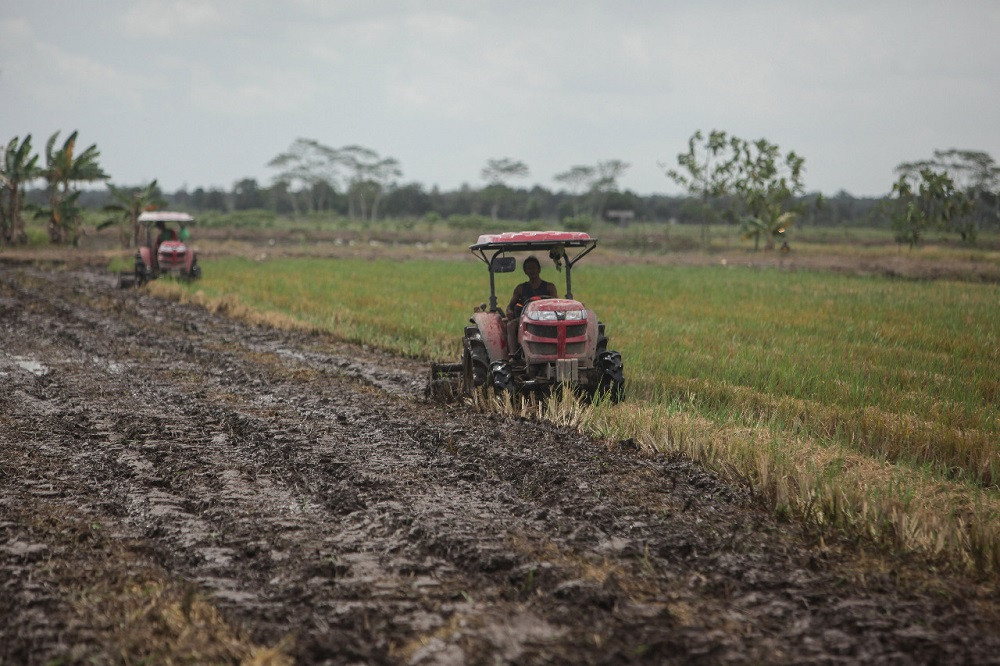Popular Reads
Top Results
Can't find what you're looking for?
View all search resultsPopular Reads
Top Results
Can't find what you're looking for?
View all search resultsObservers raise concerns over Central Kalimantan food estate
The government is developing about 164,600 hectares in the province to create food estates for crops such as rice.
Change text size
Gift Premium Articles
to Anyone
Experts and environmentalists are raising concerns over the government’s food estate project in Central Kalimantan.
The government is developing about 164,600 hectares to create food estates in the province for crops such as rice. The first phase of development, which started this year, covers about 30,000 ha of land, two thirds of which will be located in Kapuas regency and the rest in Pulang Pisau regency.
Indonesian Political Economy Association (AEPI) agriculture expert Khudori said on Thursday that the food estate project would not serve short-term food interests and might struggle to find farmers to hire.
If one farmer tended to 3 ha of land in the food estate, he said, the government would need about 10,000 farmers to manage the first phase of development. Khudori expected that it would be difficult to find and mobilize that quantity of farmers for to the project.
Khudori also questioned whether the government would retain the land or distribute it to locals and what the so-called farmers’ corporation and production model would look like.
“These questions have been left unanswered,” he said in a virtual discussion on Thursday.
Read also: Explainer: All you need to know about the govt’s food estates
“On whether the food estate is a solution or a problem for farmers, judging by the previously tested and failed schemes, it’s a problem,” said Khudori, expressing hope that the government had learned lessons from previous failed attempts to develop similar projects.
Dwi Andreas Santosa, an agriculture expert from the Bogor Institute of Agriculture (IPB), said in September that history showed a series of government failures in developing food estates over at least the past 25 years.
In the mid-1990s, President Soeharto’s administration sought to develop a similar project, the Peatland Development (PLG) project, consisting of about 1.4 million ha in Central Kalimantan but failed. Critics said the failure was the result of the government ignoring scientific principles in the project. President Joko “Jokowi” Widodo’s administration will use some of the former PLG land to develop its food estate.
The food estate project comes as the government tries to secure food supplies amid COVID-19-induced supply chain disruptions.
At least 31 provinces reported garlic shortages in April, just a month after the pandemic arrived in the country. Many provinces also reported shortages of other staple foods like sugar, chili and chicken eggs, according to Jokowi.
Indonesian Forum for the Environment (Walhi) activist Ode Rakhman said the public would need a feasibility study of the project as a reference to participate in the discourse.
The government also needed evaluate the previously failed attempt to develop the PLG project to stop from repeating the same mistakes, said Ode.
“There is not yet a solid foundation that shows that this food estate development is guaranteed not to be a failure like the previous ones,” said Ode.
“Another note is that public participation has been ineffective as a result of the absence of or confusion over information from the government, such as the planned area, the type of area, at what depth of peatland the food estate will be located and what institution will lead the project,” he added.










